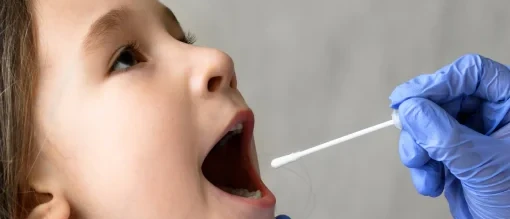Why “Any Test” Isn’t Enough for Court
In family law and legal disputes, drug, alcohol, and DNA testing can play a pivotal role in determining outcomes. But not all tests are created equal. While some tests may detect substances or establish biological relationships, they may not meet the strict legal requirements to be admissible in court.
For evidence to be accepted, the testing process must be legally defensible — meaning every step, from collection to reporting, is conducted under strict protocols that can withstand scrutiny from lawyers, judges, and opposing experts.
Here’s what actually makes a test court-ready.
1. The Chain of Custody
One of the most important factors in legally defensible testing is the chain of custody. This is the documented trail showing:
- Who collected the sample
- When and where it was collected
- How it was packaged and stored
- Who had access to it until it reached the laboratory
Any gap or inconsistency in this chain can result in the test being challenged — and potentially dismissed — in court.
2. Accredited Sample Collection
Court-admissible tests must be collected by trained professionals who follow strict identification and observation procedures.
This includes:
- Verifying the donor’s identity with valid photo ID
- Using tamper-evident packaging and seals
- Recording the donor’s consent and confirming test instructions
DIY kits or self-collected samples may be fine for personal use, but without professional collection and verification, they rarely hold up in legal proceedings.
3. ISO-Accredited Laboratories
The laboratory conducting the analysis must meet international quality standards, such as ISO/IEC 17025 accreditation.
This ensures the lab has:
- Validated testing methods
- Calibrated equipment
- Qualified staff
- Rigorous quality control measures
In short, an accredited lab can prove that results are accurate, reliable, and free from contamination or procedural error.
4. Legally Compliant Testing Methods
The choice of test matters. Courts often prefer methods that:
- Are well-established and scientifically validated
- Offer clear detection windows (e.g., hair for long-term use, PEth for recent alcohol consumption)
- Have minimal susceptibility to tampering or environmental contamination
Using the wrong test for the case — for example, a short-window urine test when long-term history is required — can weaken the evidence.
5. Clear, Expert Reporting
A legally defensible test includes a full, detailed report written in plain language that can be understood by the court.
A strong report should:
- Explain the methodology used
- Present the results clearly
- Interpret the findings within context
- Be signed off by an authorised scientist
In many cases, providers can also supply expert witness statements to explain the results under oath.
6. The Right Provider
Ultimately, the provider’s reputation and compliance history can influence how evidence is received. A trusted, specialist testing company with a track record in family law cases can make all the difference in ensuring results stand up to legal scrutiny.
Final Thoughts
In legal proceedings, the stakes are high — and a weak or poorly collected test can lead to critical evidence being thrown out. It’s not just about detecting a substance or confirming a relationship; it’s about ensuring that every step is transparent, verified, and beyond challenge.
If you’re working on a case where drug, alcohol, or DNA evidence is needed, choose a provider who understands the courtroom standards and can deliver results that truly count.
Watch Webinar

